Archive: 2024 | 2023 | 2022 | 2021 | 2020 | 2019 | 2018 | 2017
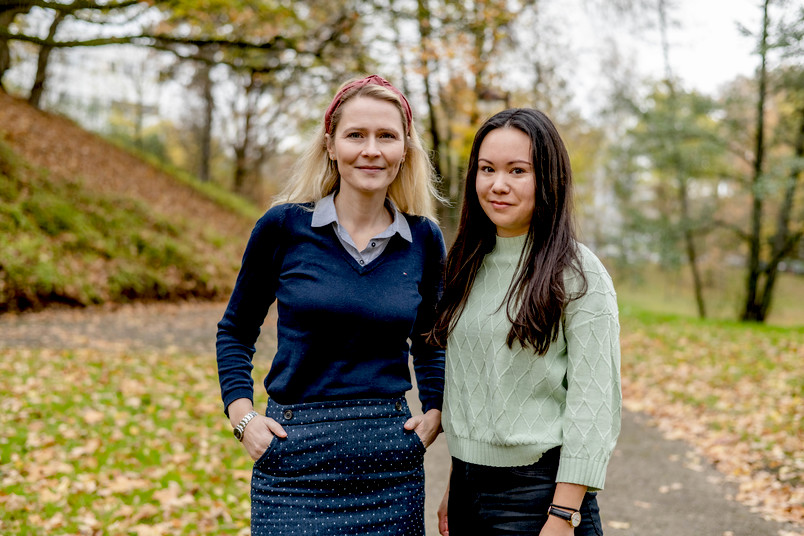
The absence of a certain serotonin receptor supports the reduction of previously learned fear responses.
The neurotransmitter serotonin plays a key role in both the onset and in the unlearning of fear and anxiety. A research team from the Department of General Zoology and Neurobiology headed by Dr Katharina Spoida and Dr Sandra Süß in the Collaborative Research Centre “Extinction Learning” at Ruhr University Bochum, Germany, has been investigating the underlying mechanisms. The researchers showed that mice lacking a specific serotonin receptor unlearn fear much faster than the wild type. The results of the study provide a viable explanation how drugs that are typically used for the treatment of post-traumatic stress disorder (PTSD) alter our brain activity. The ability to unlearn fear is often impaired in PTSD patients, making it more difficult to carry out therapies. The study was published in the journal Translational Psychiatry on 19 November 2022.
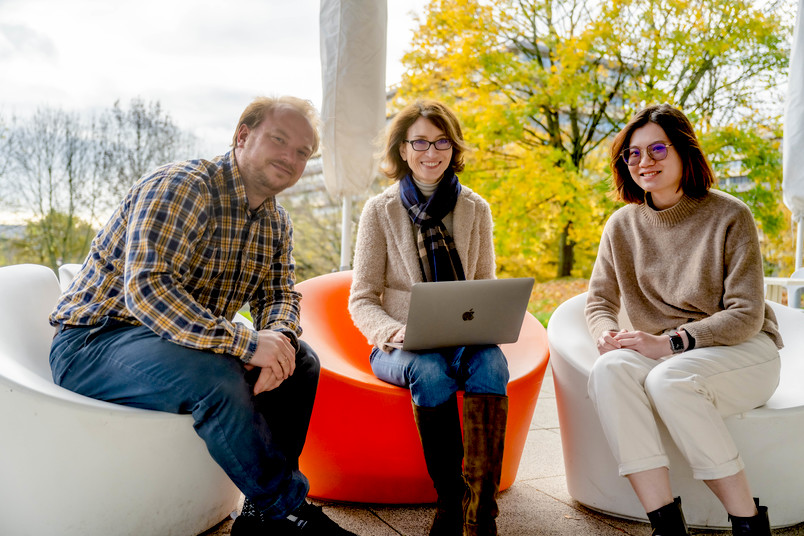
New insights into the function of mitochondria reveal interfaces between the nervous and immune systems.
Mitochondria are primarily known as the powerhouse of the cell. However, these cellular organelles are required not only for providing energy: Professor Konstanze Winklhofer and her group at the Faculty of Medicine at Ruhr University Bochum, Germany, recently discovered that mitochondria play an important role in signal transduction in innate immune pathways. They regulate a signalling pathway that helps to eliminate pathogens, but can cause damage through inflammation upon overactivation. The research team published their findings in the EMBO Journal of 17. November 2022.

Monoaminergic Neuronal Networks and Disease (MoNN&Di)
Neues neurowissenschaftliches Graduiertenkolleg, das die Modulation neuronaler Netzwerke untersuchen wird (Sprecher: Prof. Stefan Herlitze). Herzlichen Glückwunsch!!
Die Signalkaskaden in fast jeder Zelle unseres Körpers werden durch sogenannte G-Protein-gekoppelte Rezeptoren gesteuert, kurz GPCRs. Schon geringe Veränderungen dieser Signalwege führen deswegen zu unterschiedlichen Krankheiten. Aktiviert werden die GPRCs durch physikalische und chemische Reize, etwa bestimmte Botenstoffe. Dazu gehören im Gehirn die Neurotransmitter Serotonin, Dopamin und Noradrenalin, die bei der Modulation von Emotionen, Motivation und Aufmerksamkeit eine wichtige Rolle spielen. Ziel des Graduiertenkollegs ist es, die Funktion dieser Transmittersysteme für die Funktion des Gehirns und das Verhalten zu untersuchen.
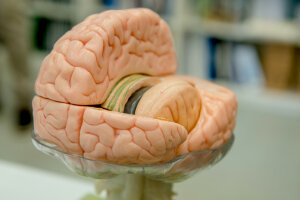
Researchers have recreated the brain functions of mice and humans using computers. Artificial intelligences could learn from this.
The thalamus has long been considered a brain region primarily responsible for processing sensory stimuli. Recent studies have provided increasing evidence that it constitutes a central switch in cognitive processes. Neuroscience researchers led by Professor Burkhard Pleger in Collaborative Research Centre 874 at Ruhr-Universität Bochum and a team from the Massachusetts Institute of Technology (MIT, USA) observed learning processes in the brains of mice and humans and modelled them in mathematical models. They showed that the region of the mediodorsal nucleus in the thalamus plays a decisive role in cognitive flexibility. They published their findings in the journal PLOS Computational Biology on 12 September 2022.
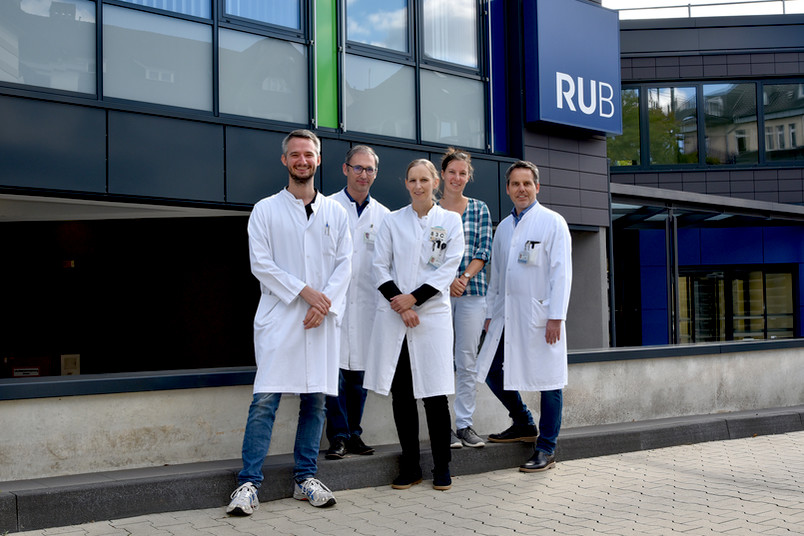
Understanding the exact origins of neurological diseases is essential for the development of therapies. New findings could provide approaches for more effective diagnostic and therapeutic strategies
Neurological diseases often begin with an inflammatory process and the degradation of the so-called myelin layer, which surrounds the nerve fibres (axons) like a protective insulating layer. This is usually followed by the ultimate damage to the nerve fibres (axonal neurodegeneration). The clock is now ticking: while the inflammatory process is still easily treatable in the early stages of neurological conditions, the relevant therapies are often no longer effective enough in the later stages.
Two research groups led by Dr. Ilya Ayzenberg and Dr. Ruth Schneider from the University Clinic for Neurology (Professor Ralf Gold) and the Institute for Neuroradiology (Professor Carsten Lukas) at St. Josef Hospital Bochum have studied the interplay of this three-step process of inflammation, the degradation of myelin and the mostly irreversible axonal neurodegeneration. They published their findings in the renowned journals Brain and Brain Communications in March and June 2022.
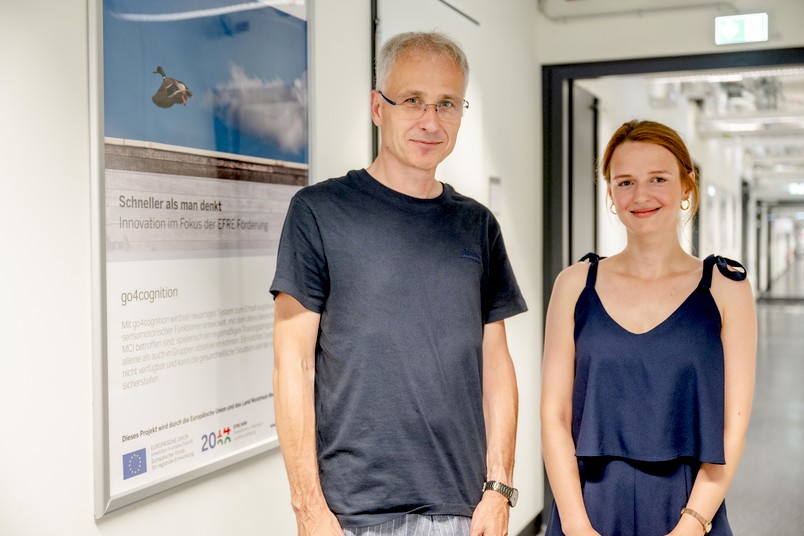
A new study shows how effective it is to exercise body and mind.
Physical and mental exercise can prevent dementia. The training is particularly effective when body and mind are addressed at the same time. This is the conclusion of researchers from Bochum and Duisburg who compared the effects of combined and separate mental and physical exercise in people with mild cognitive impairment, a possible pre- stage of dementia. The team led by Vanessa Lissek and Professor Boris Suchan from the Clinical Neuropsychology research group at Ruhr-Universität Bochum, together with colleagues from Berufsgenossenschaftliches Klinikum (BG Clinic) Duisburg, describe the results in the Journal of Alzheimer Disease, published online on 13. September 2022.
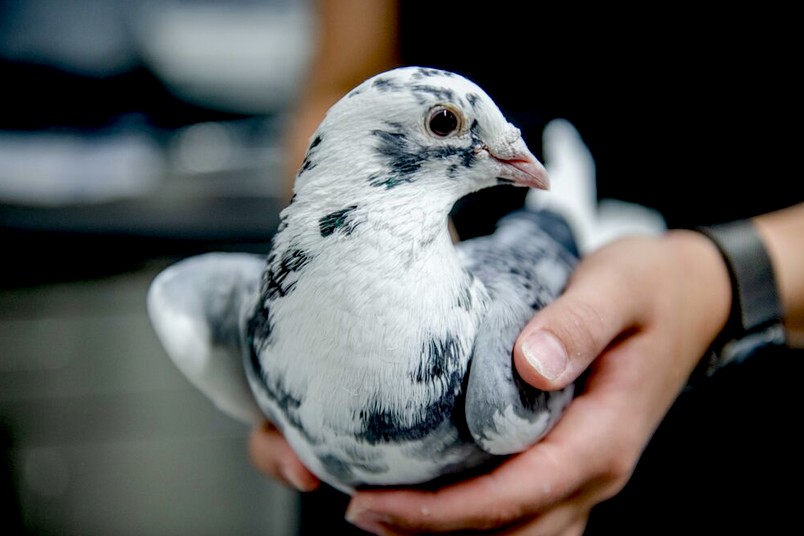
Compared to the energy efficiency of avian brains, mammals are no match.
Bird neurons only need about a third of the energy of mammalian nerve cells to power their brains. “This helps to explain how birds manage to be so smart, even though their small brains have so many neurons,” says Professor Onur Güntürkün, head of the biopsychology unit at Ruhr-Universität Bochum. His research team, together with colleagues from Cologne, Jülich and Düsseldorf, studied the energy consumption of pigeons’ brains using imaging methods. The researchers present their findings in the journal Current Biology on 8. Septembre 2022.
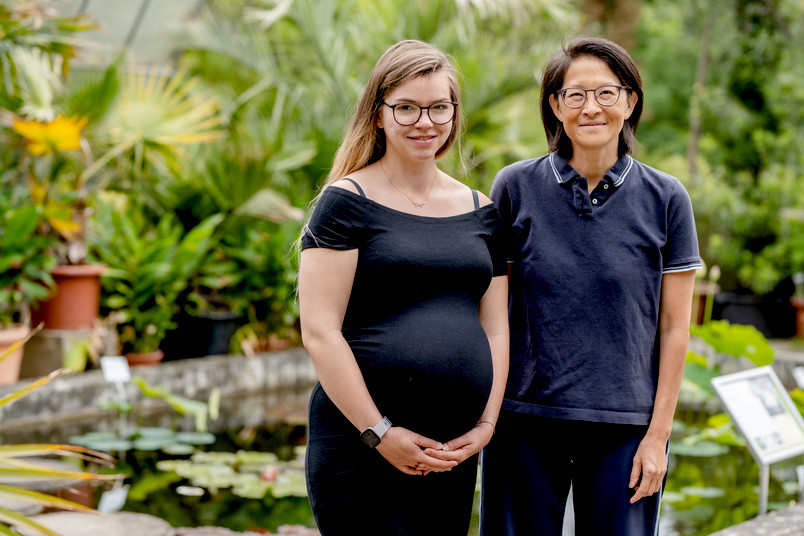
The way aggressive behaviour develops is still poorly understood. Researchers have now discovered a crucial piece of the jigsaw.
Researchers from Ruhr-Universität Bochum (RUB) and colleagues from Bonn have found a connection in the brain that is crucial for aggressive behaviour in mice. The so-called P/Q-type calcium channel, which reacts to the messenger substance serotonin, is key. It has been known for some time that serotonin plays a decisive role in emotion regulation. But it hasn’t been understood until now how exactly aggressive behaviour develops. Once the researchers switched off the serotonin-mediated connection between two specific brain regions, the mice behaved less aggressively. The team headed by Pauline Bohne and Professor Dr. Melanie Mark reports their findings in the “Journal of Neuroscience”, published online on 19 July 2022.

The Research Department of Neuroscience (RDN), together with SFB 1280, ReThink and FOR 2698, presents the movie night at Endstation.Kino (Bahnhof Langendreer), with the film “TICS” by Thomas Ostwald on July 01, 2022.
A doctor invites his patients to join him on a journey through Lapland. An adventure? A crazy idea? Possibly a bit of both. The true story can be seen as “TICS – With Tourette’s to Lapland” as an insightful documentary. We are particularly pleased to bring the premiere series of the movie to Bochum, and even more: to organize a special cinema evening together with the director Thomas Oswald, the two scientific advisors of the film Prof. Dr. Alexander Münchau and Prof. Dr. Christian Beste as well as the Bochum hosts Prof. Dr. Onur Güntürkün and Prof. Dr. Carsten Saft.

Die RUB-Forschungsgruppe „Szenarien der Vergangenheit“ wird weitergefördert.
Vergangenes wird nicht einfach aus dem Gedächtnis abgerufen, sondern während des Erinnerns teilweise erst konstruiert. Diese überzeugung liegt der Forschungsgruppe 2812 „Szenarien der Vergangenheit: Ein neuer theoretischer Rahmen für das generative episodische Gedächtnis“ zugrunde. Die Gruppe unter Leitung von Prof. Dr. Sen Cheng vom Institut für Neuroinformatik der Ruhr-Universität Bochum wird von der Deutschen Forschungsgemeinschaft für die kommenden drei Jahre weitergefördert.
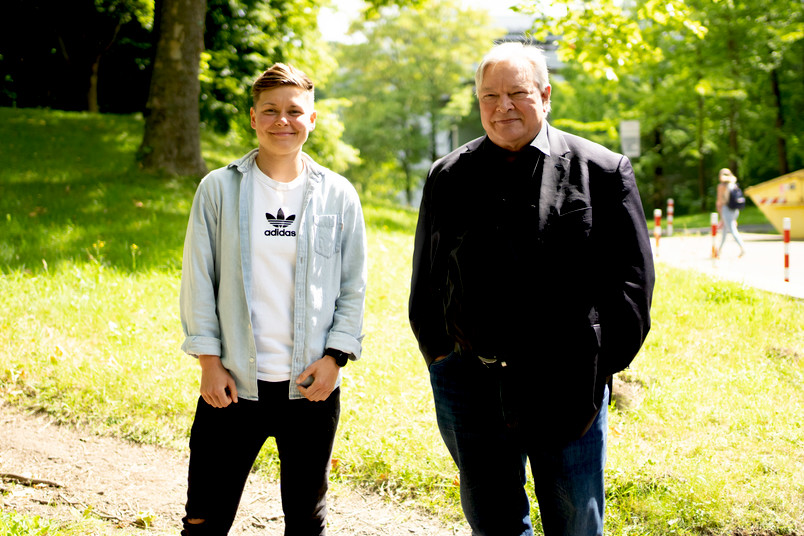
Multiple sclerosis causes nerve cells to lose their insulating layer. Researchers from Bochum are looking for approaches to stimulate regeneration processes. They have identified two relevant proteins.
Researchers at Ruhr-Universität Bochum have been studying the role of the two proteins tenascin C and tenascin R in multiple sclerosis. In this disease, cells of the immune system destroy the myelin sheaths, i.e. the sheaths of the nerve cells. As the Bochum team showed in experiments with mice, the regeneration of the myelin sheaths is inhibited if the two tenascins are present. Dr. Juliane Bauch and Professor Andreas Faissner from the Cell Morphology and Molecular Neurobiology Department in Bochum report their findings in the journal “Cells”, published online on 28 May 2022.

Calpaine spalten Proteine in schädliche Bruchstücke auf. Im Zellmodell lässt sich der Prozess aufhalten.
ähnlich wie Alzheimer führt die Erbkrankheit Spinozerebelläre Ataxie Typ 17 (SCA17) zum Untergang von Gehirnnervenzellen und zum vorzeitigen Tod der Betroffenen. Die genauen Mechanismen der Erkrankung sind unbekannt, daher gibt es bislang keine Behandlungsansätze. Forschende der Humangenetik der Ruhr-Universität Bochum (RUB) um Dr. Jonasz Weber haben nun eine Klasse von proteinspaltenden Enzymen, sogenannten Calpainen, unter Verdacht, zu der Erkrankung beizutragen. Im Modell gelang es durch Ausschaltung der Calpaine, den Verlauf aufzuhalten. Die Forschenden berichten in der Zeitschrift Cellular and Molecular Life Sciences vom 28. April 2022.

High-resolution microscopy now enabled an international research team to enlarge the knowledge about species-specific differences of the architecture of cortical neurons.
Researchers from the research group Developmental Neurobiology at Ruhr-Universität Bochum around Professor Petra Wahle, in collaboration with partners from Mannheim and Jülich, Germany, and Linz, Austria, and La Laguna, Spain, have shown that primates and non-primates differ in an important aspect of their architecture: the origin of the axon which is the process responsible for the transmission of electrical signals called action potentials. Results are published 20 April 2022 in the Journal eLife.
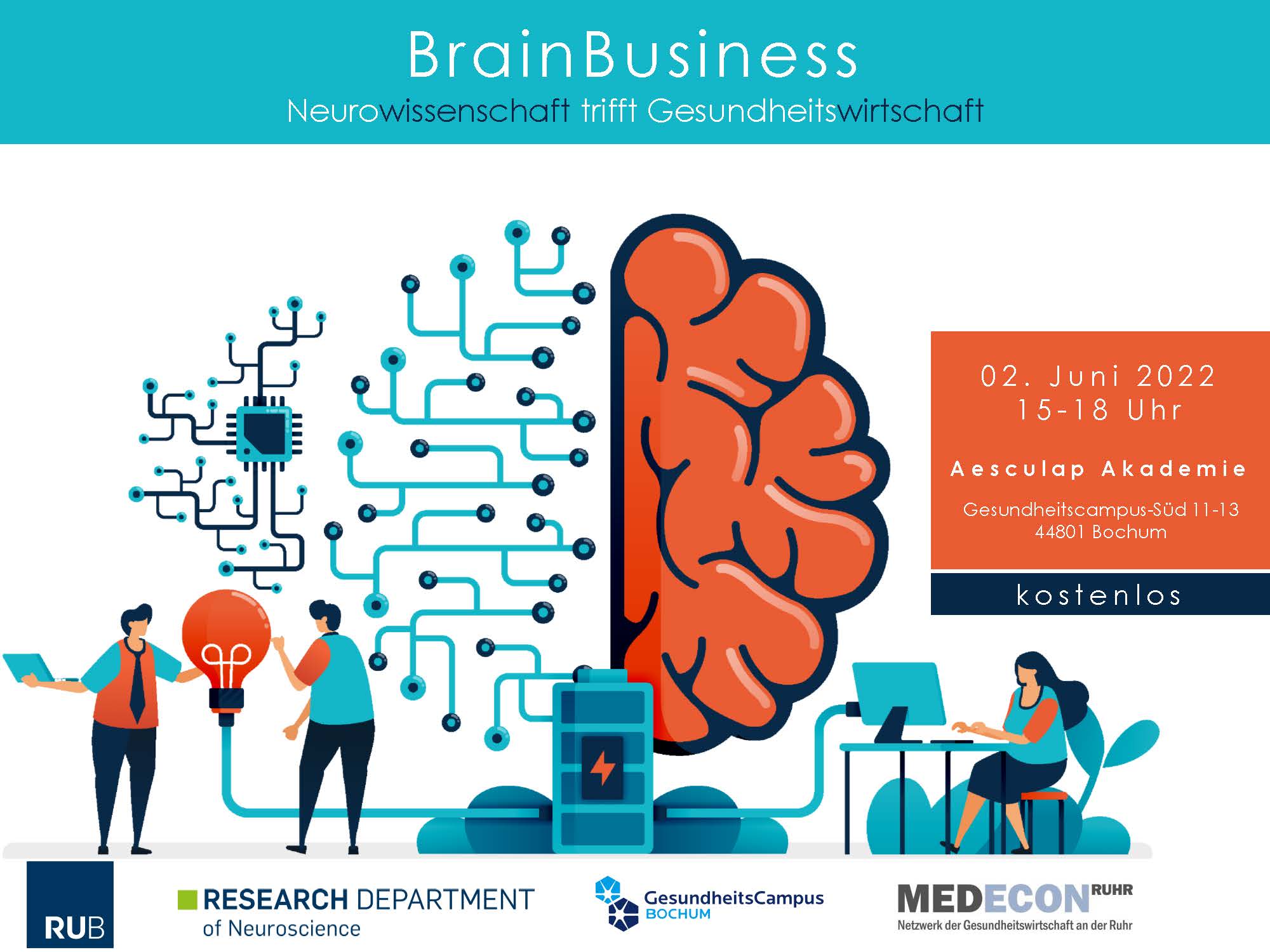
Transfer event on June 2nd, 2022
Opening up new transfer potentials - that is the goal of the new BrainBusiness event series, to which the Research Department of Neuroscience, together with MedEcon Ruhr and the GesundheitsCampus agency, welcomed around 60 participants from the fields of science and the healthcare industry to the Aeskulap Academy on June 2, 2022 - from young scientists and clinical partners to established companies.

Bochum researchers have gained new insights into the cellular and molecular mechanisms of absence seizures and potential therapy options.
Stimulation of certain cerebellar areas could help combat absence seizures. However, what happens at the cellular and molecular level in the brain in this form of epilepsy and how exactly stimulation has an effect is not yet understood in detail. Researchers at Ruhr-Universität Bochum (RUB) have gained new insights by conducting experiments with mice. The team led by Dr. Jan Claudius Schwitalla and Professor Melanie Mark from the RUB Behavioral Neuroscience research group describes the results in the journal “Cellular and Molecular Life Sciences” from 19 March 2022. They cooperated with the Erasmus Medical Center in Rotterdam and Utrecht as well as with colleagues from Bonn, Münster and München.

Wie unterscheiden sich die Gehirne von Tätern und Nicht-Tätern?
Es ist ein spezieller Menschenschlag, den Prof. Dr. Boris Schiffer unter die Lupe genommen hat. Menschen, die schon im Kindesalter auffallen, weil sie straffällig werden. Und die oft ihr ganzes Leben lang immer wieder mit dem Gesetz in Konflikt geraten. Ihnen fehlt es an Verantwortungsgefühl, an Reue. Sie nutzen andere für ihren Vorteil aus – nichts gilt ihnen mehr als die sofortige Befriedigung ihrer eigenen Bedürfnisse, und sei es auf Kosten anderer. Fachleute wie Schiffer, Direktor der Forschungsabteilung für Forensische Psychiatrie und Psychotherapie am LWL-Universitätsklinikum Bochum und der LWL-Maßregelvollzugsklinik Herne, diagnostizieren in solchen Fällen eine dissoziale Persönlichkeitsstörung.
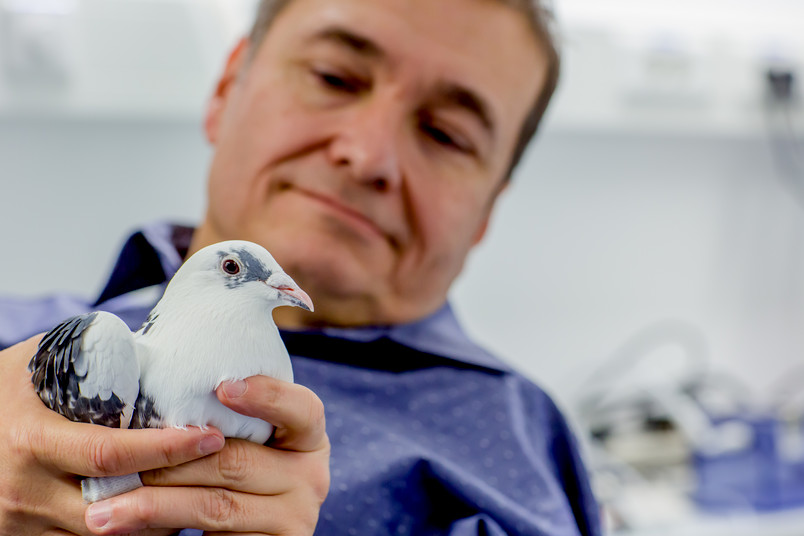
Using a novel research method, Bochum-based research team identifies universal principles in categorisation learning.
Our mental ability to divide the complex world into categories makes our daily life much easier. But how do we categorise? What kind of stimulus properties do we assess? Researchers at Ruhr-Universität Bochum (RUB) have come a step closer to answering these questions with the help of pigeons. They discovered that birds use different strategies to successfully learn categories. To gather data, the researchers used a novel research method. To this end, they combined so-called virtual phylogenesis, in which artificial stimuli are generated by computers, with a machine learning approach, namely an automated evaluation of the birds’ pecking behaviour. They have published the findings of their research in the January issue of the journal Animal Cognition.